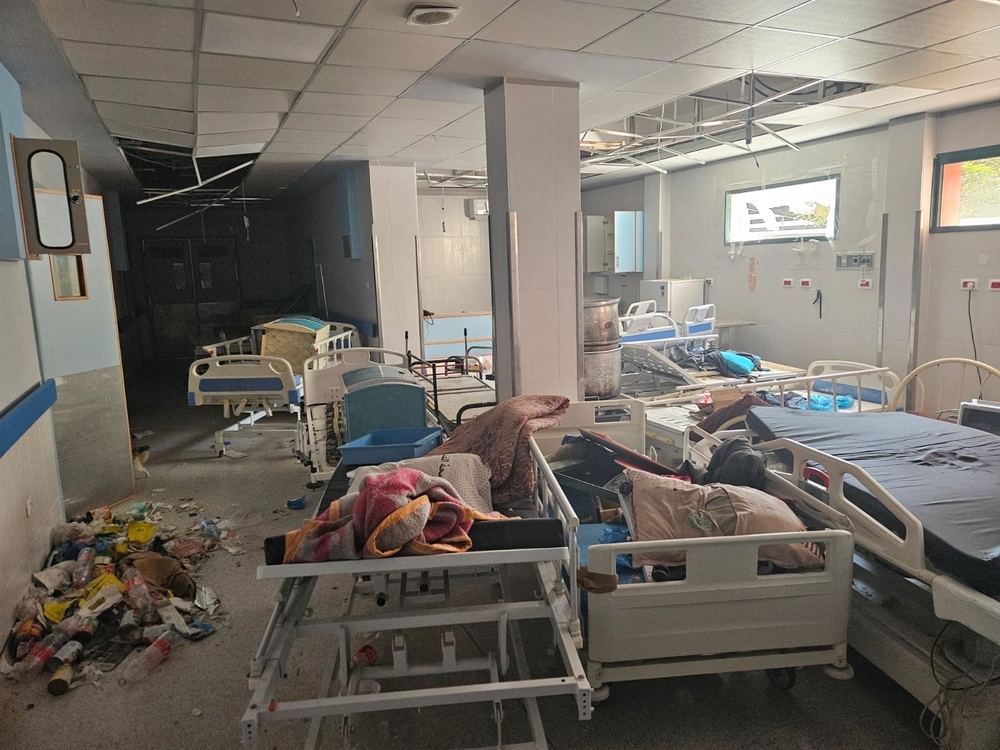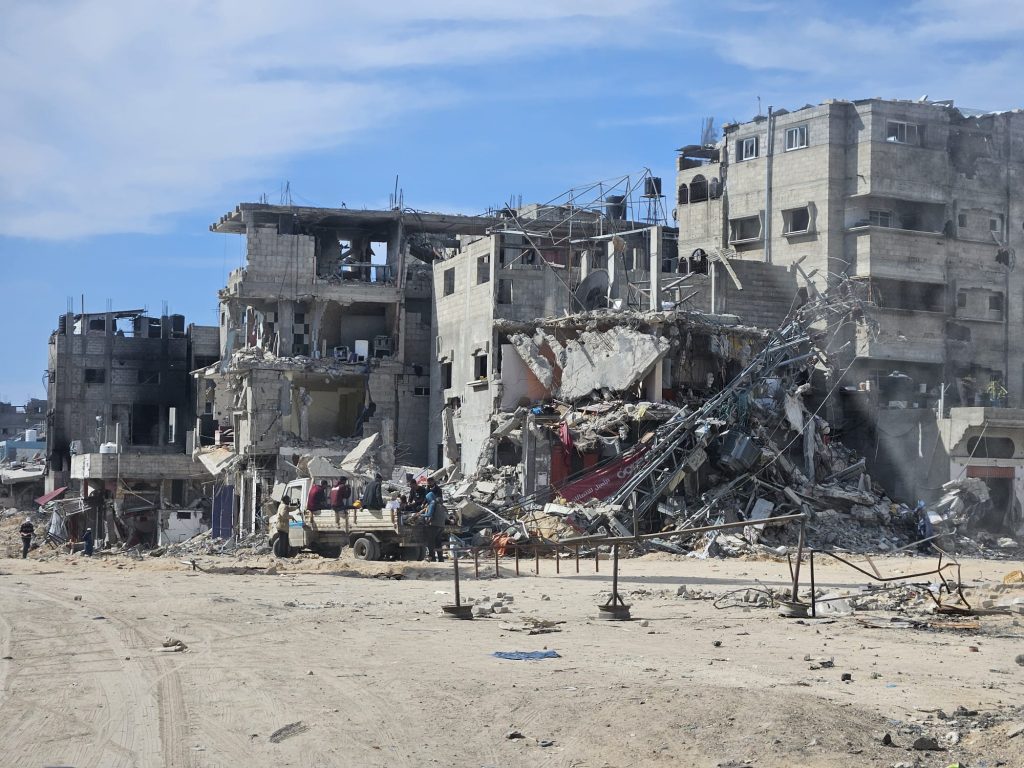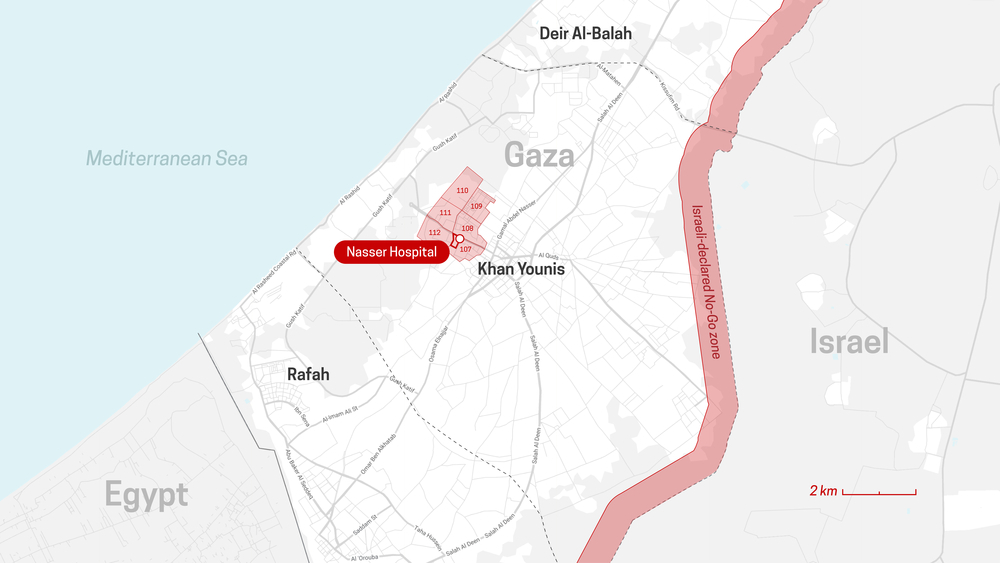Jerusalem, 5th July 2024– As the European Gaza Hospital has shut down due to new evacuation orders, Nasser Hospital, the last comprehensive hospital in south Gaza, risks being overwhelmed with mass casualties and wounded patients, warns Médecins Sans Frontières (MSF). Meanwhile, MSF teams working in the hospital are seeing acute shortages of medical supplies, leaving patients at risk of losing vital healthcare.
Nasser Hospital is receiving an increase in patients every day, putting all departments in the hospital above bed capacity, while our teams are running on emergency medical stocks. The pediatric department has a capacity of 56 beds, but on 3 July MSF teams received some 100 patients. In the past few days, our teams in the orthopedic department have seen a doubling of the number of patients.


“We have children lying on the floor. There are no more mattresses and no more beds, so patients are in the corridors lying on blankets and sitting on stairs,” says MSF nurse activity manager Cristina Roldán. “The team has put nails on the wall so we can hang the IV fluids and medication we need to give patients, but it’s a very difficult situation, and the team is exhausted.”
On 1 July 2024, following evacuation orders by Israeli forces for the areas east and south of Khan Younis, the Ministry of Health decided to precautionarily evacuate the European Gaza Hospital. Patients were transported in ambulances from the European Gaza Hospital to Nasser Hospital, but many were forced to leave and walk some 10 km to get there. Approximately 250,000 people are at risk of displacement in Khan Younis, due to the evacuation order.
While dealing with an influx of new patients, Nasser Hospital is also grappling with limited fuel. Patients at the hospital and those in surrounding field hospitals are at risk of losing lifesaving care. Nasser Hospital is the primary site for field hospitals to sterilize their equipment. If it loses electricity due to lack of fuel, sterilization becomes difficult, and the care provided at several field hospitals will come to a stop.
“Overall, it’s a comprehensive issue – from shortages of beds and supplies to the lack of surgeons. With yet another hospital closed, patient’s lives are even more at risk,” says Abdelmoneim.
While hospitals in Gaza continue to grapple with acute shortages of supplies, trucks carrying MSF medical supplies were denied entry into the Strip by the Israeli authorities on 3 July due to ongoing fighting in the south. MSF has been unable to bring any medical supplies into Gaza since the end of April.

The Israeli authorities must urgently open more crossing points to massively speed up the amount of aid getting through to Gaza. MSF also calls on all parties to ensure safe routes to move humanitarian assistance inside the Strip. This is the only way to avoid more preventable deaths.












